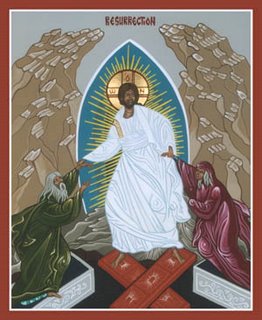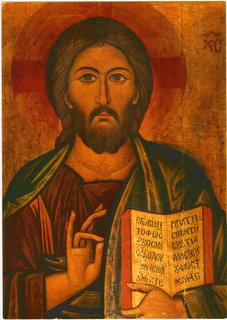 “Love is strong as death” (Song of Sol. 8.6). … [L]ove demands infinity, indestructibility; indeed it is, so to speak, a call for infinity. But it is also a fact that this cry of love’s cannot be satisfied, that it demands infinity but cannot grant it; that it claims eternity but in fact is included in the world of death, in its loneliness and its power of destruction. Only from this angle can one understand what “resurrection” means. It is the greater strength of love in face of death.
“Love is strong as death” (Song of Sol. 8.6). … [L]ove demands infinity, indestructibility; indeed it is, so to speak, a call for infinity. But it is also a fact that this cry of love’s cannot be satisfied, that it demands infinity but cannot grant it; that it claims eternity but in fact is included in the world of death, in its loneliness and its power of destruction. Only from this angle can one understand what “resurrection” means. It is the greater strength of love in face of death.For [man], since he has no continuance in himself, survival, from a purely human point of view, can only become possible through his continuing to exist in another.
[O]nly one could truly give lasting stability: he who is, who does not come into existence and pass away again but abides in the midst of transience: the God of the living, who does not hold just the shadow and echo of my being, whose ideas are not just copies of reality. … In him I can stand as more than a shadow; in him I am truly closer to myself than I should be if I just tried to stay by myself.
[O]nly where someone values love more highly than life, that is, only where someone is ready to put life second to love, for the sake of love, can love be stronger and more than death. … If the power of love for another were so strong anywhere that it could keep alive not just his memory, the shadow of his “I”, but that person himself, then a new stage in life would have been reached. … [This new realm] would signify the end of the sovereignty of bios, which is at the same time the sovereignty of death; it would open up the realm which the Greek Bible calls “zoe” that is, definitive life, which has left behind the rule of death. … It would no longer be evolution but decision and gift in one.
 [A]s man has no permanence in himself his survival could only brought about by his living on in another. … [O]nly the love which takes up the beloved in itself, into its own being, could make possible this existence in the other. … Jesus’ total love for men, which leads him to the cross, is perfected in total stepping-over to the Father and therein becomes stronger than death, because in this it is at the same time total “being held” by him.
[A]s man has no permanence in himself his survival could only brought about by his living on in another. … [O]nly the love which takes up the beloved in itself, into its own being, could make possible this existence in the other. … Jesus’ total love for men, which leads him to the cross, is perfected in total stepping-over to the Father and therein becomes stronger than death, because in this it is at the same time total “being held” by him.[I]mmortality always proceeds from love, never out of the autarchy of that which is sufficient to itself. … [T]his principle, properly understood, also applies even to God as he is seen by the Christian faith. … [W]hat is revolutionary about the Christian view of the world and of God … is that it learns to understand the “absolute” as absolute “relativity”, as relatio subsistens.
[L]ove found immortality, and immortality proceeds from love alone. … [H]e who has love for all has founded immortality for all. That is precisely the meaning of the biblical statement that his resurrection is our life. … [I]f he has risen, then we have too, for then love is stronger than death; if he has not risen, then we have not either, for then the situation is still that death has the last word, nothing else. … [E]ither love is stronger than death or it is not. … This also means, it is true, that our own love, left to itself, is not sufficient to overcome death; taken in itself it would have to remain an unanswered cry. It means that only his love, coinciding with God’s own power of life and love, can found our immortality.
It goes without saying that the life of him who has risen from the dead in not once again bios, the bio-logical form of our mortal life inside history; it is zoe, new, different, definitive life; life which has stepped beyond the mortal realm of bios and history, a realm which has here been surpassed by a greater power. … [T]his new life begot itself in history and had to do so, because after all it is there for history, and the Christian message is basically nothing else than the transmission of the testimony that love has here broken through death and thus transformed fundamentally the situation of all of us.
--Joseph Ratzinger (Pope Benedict XVI)
 Top icon written by Joanna Ferencz.
Top icon written by Joanna Ferencz.
No comments:
Post a Comment